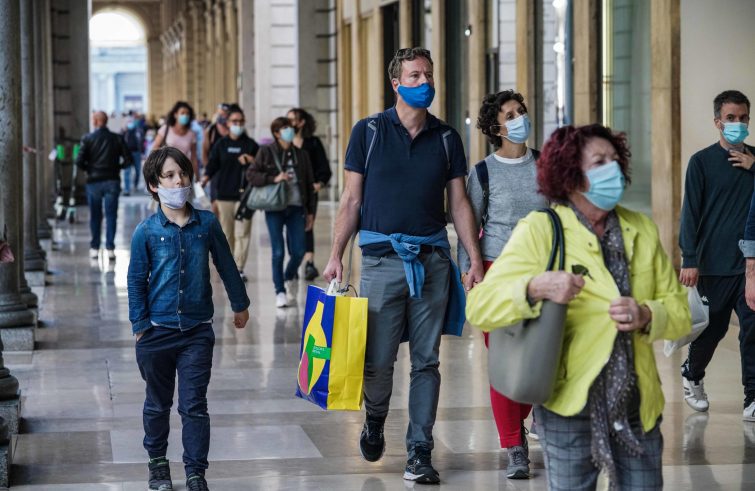
While some continue denying the facts both nationally and across the globe – and regrettably some national and international leaders are involved in this culturally destructive process – institutions in Italy, too, have taken the first necessary steps to step up efforts in the face of a new spike of contagions from Covid.
So far our country faired better than other large European partners, but
the latest data suggests that the restrictions that were partly eased in the declining phase of the pandemic now need to be tightened.
As Premier Conte pointed out, it should be done “with proportionality.”
In fact, the experience of the first wave has put us in a position to intervene in such a way as to mitigate its side effects, so to speak. Affirming the primacy of health over the economy in the turbulent days of the pandemic outbreak was a commendable decision.
But now policymakers are called to find the time and the tools to contain the coronavirus without jeopardizing the first steps of economic recovery.
It is to be hoped that this approach will be pursued, for its effects on jobs and businesses have been devastating. However, practical measures are as important as the messages sent out to the country, since only by recovering the unified vision – with a few significant exceptions – characterizing the first months of the year, will it be possible to get out of the tunnel once and for all.
The electoral round of 20 and 21 September is now behind us and this should lead political forces to lower the tone of propaganda and give more thought to the concrete nature of the current problems.
Especially because the elections signalled voter fatigue in the face of ephemeral political slogans.
“In the face of many petty forms of politics focused on immediate interests, I would repeat that ‘true statecraft is manifest when, in difficult times, we uphold high principles and think of the long-term common good,” the Pope writes in his new encyclical. His words convey a precious message that can be applied also to the Italian situation.
The government treaded with great caution on the political and institutional developments of the last few days – the most challenging since last summer. The extension of the State of Emergency to January 31 was preceded by a parliamentary debate, with a final vote on the resolution, followed by the speech in the Chamber of Health Minister, Roberto Speranza.
Moreover, the Decree-Law was adopted as a priority regulation, immediately enforceable but subject to parliamentary scrutiny for conversion into law.
The Decree-Law ( n.125 of 7 October) provides the grounds also for the now renowned DPCMs – Decrees of the Italian Prime Minister released according to the epidemiological development. The first will be issued within the next week: in fact, the one in effect since September 7 has been extended only until October 15.
In addition to the extension, the Decree-Law enacts two significant changes.
The first concerns the obligation to always carry a mask and to wear it outdoors except in cases whereby “continuous isolation from non-cohabiting persons is guaranteed”, with the example of a walk on a deserted beach. As regards work activities, including coffee shops and restaurants, the existing regulations remain unchanged, as do the exemptions (children under 6 years old, etc.). The second change affects the role of the Regions that, except in some commonly agreed instances, may not introduce less stringent measures than those enshrined in national law, only more restrictive if necessary.
Relations with Regions and their self-governance has been a crucial issue – for better or for worse – in the management of the pandemic.
It is no coincidence that the government immediately activated – in conjunction with civil protection coordinating headquarters – a steering committee with the Regions’ governors and mayors. A more constructive relationship is also supported by the realistic consideration – referred to in general terms – concerning the termination of the electoral deadline that saw some Presidents of Regions in office directly engaged (with excellent personal results).
Besides the epidemic, economic management is the other area on which the development of a constructive and responsible approach will be measured.
Next week, the Government is due to submit to Brussels the draft budgetary plan, which includes a detailed summary, while at domestic level it faces the vote on Nadef: update note of the document on economy and finance in view of the impending budget law. This process is being challenged by the problem of parliamentarians unable to attend because infected or quarantined. Since a budget overrun is expected, an absolute majority is required in both Chambers, and the majority might now be facing limited margins in the Senate.












